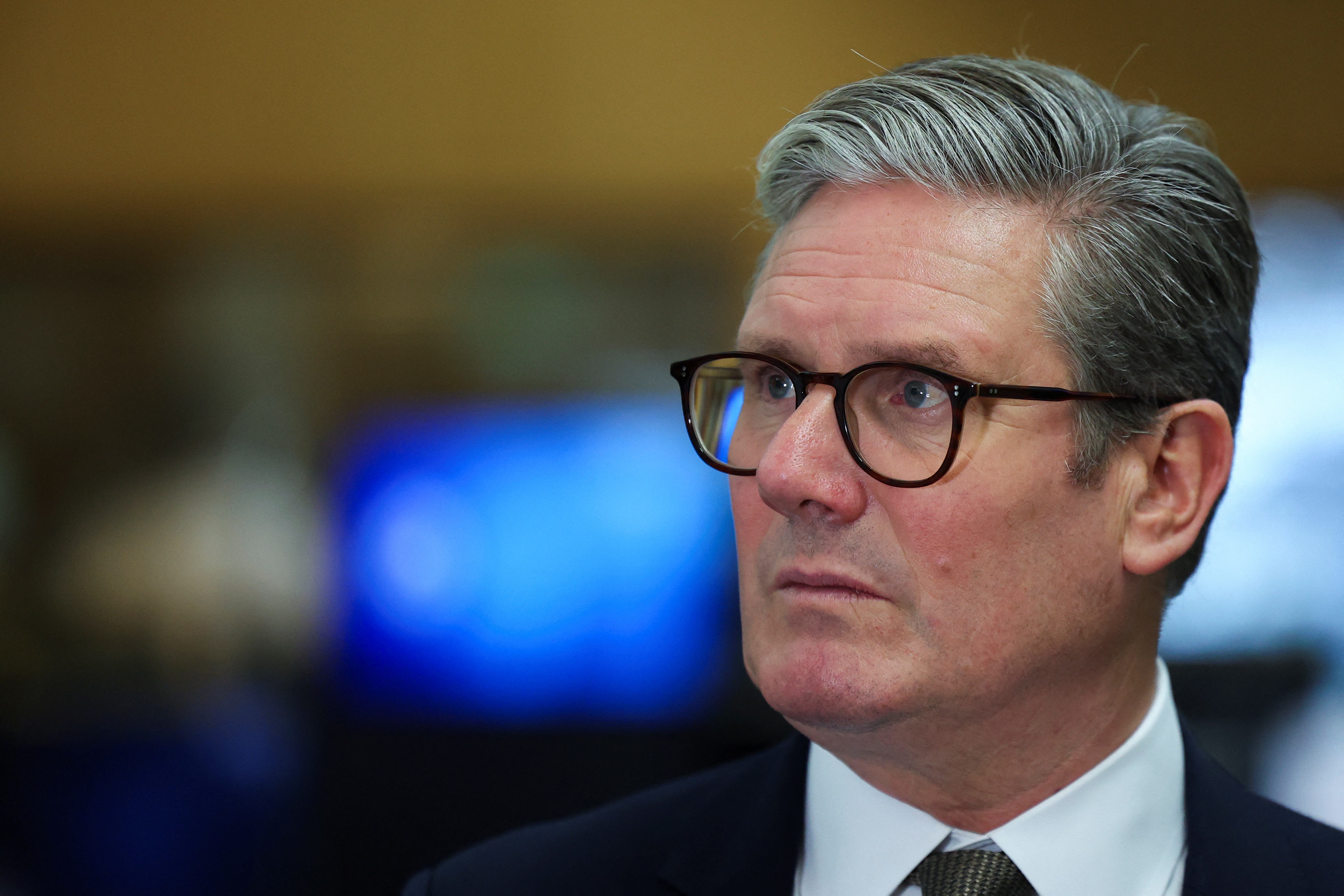Starmer warns Iranian president to ‘refrain from attacking Israel’
Western governments fear Iran could attack Israel this week in retaliation for an air strike on Tehran that killed Hamas leader Ismail Haniyeh.

Your support helps us to tell the story
From reproductive rights to climate change to Big Tech, The Independent is on the ground when the story is developing. Whether it's investigating the financials of Elon Musk's pro-Trump PAC or producing our latest documentary, 'The A Word', which shines a light on the American women fighting for reproductive rights, we know how important it is to parse out the facts from the messaging.
At such a critical moment in US history, we need reporters on the ground. Your donation allows us to keep sending journalists to speak to both sides of the story.
The Independent is trusted by Americans across the entire political spectrum. And unlike many other quality news outlets, we choose not to lock Americans out of our reporting and analysis with paywalls. We believe quality journalism should be available to everyone, paid for by those who can afford it.
Your support makes all the difference.The Prime Minister has urged Iran to refrain from attacking Israel in a direct conversation with the country’s president.
Speaking to Masoud Pezeshkian on Monday evening, Sir Keir Starmer warned of “a serious risk of miscalculation”, Downing Street said.
A Number 10 spokeswoman said: “(The Prime Minister) called on Iran to refrain from attacking Israel, adding that war was not in anyone’s interests.
The leaders agreed that a constructive dialogue between the UK and Iran was in both countries’ interests
Mr Pezeshkian, who has been in office for barely a month, is considered a reformist, but vowed to make Israel “regret” an air strike on Tehran that killed Hamas leader Ismail Haniyeh.
The Number 10 spokeswoman added: “The Prime Minister underlined his commitment to an immediate ceasefire, the release of all hostages and increasing humanitarian aid to Gaza. He added the focus should be on diplomatic negotiations to achieve those outcomes.
“The Prime Minister also raised the cases of foreign detainees in Iran, adding that it was vital that they received the necessary medical care.
“The leaders agreed that a constructive dialogue between the UK and Iran was in both countries’ interests. The Prime Minister added that could only be furthered if Iran ceased its destabilising actions including threats against individuals in the UK and did not further aid Russia’s invasion of Ukraine.”
The phone call followed a day of talks among western powers, with joint statements from British, American and European leaders urging de-escalation in the Middle East amid fears Iran could launch an attack on Israel this week.
Sir Keir, along with US President Joe Biden, German Chancellor Olaf Scholz, French President Emmanuel Macron and Italian Prime Minister Giorgia Meloni urged all parties to resume peace talks this week, saying there is “no further time to lose”.
Mr Biden also issued a statement along with Egyptian President Abdel Fattah El-Sisi and Qatari leader Amir Tamim bin Hamad bin Khalifa Al Thani endorsing a three-phase framework to demand Israel withdraws its troops from Gaza, Hamas returns hostages to their families, and the safe and effective distribution of humanitarian aid.
They urged “both sides” in the Gaza conflict to join talks in Cairo or Doha on August 15, adding: “As mediators, if necessary, we are prepared to present a final bridging proposal that resolves the remaining implementation issues in a manner that meets the expectations of all parties.”
On August 9, Israeli Prime Minister Benjamin Netanyahu said his country would send a negotiating team “to a place to be determined in order to finalise the details of the implementation of the framework agreement”.
Tel Aviv has warned that it will retaliate against any attacks by Iran, with Israeli government spokesman David Mencer telling Sky News it would “exact a heavy price for any aggression against us from any arena”.